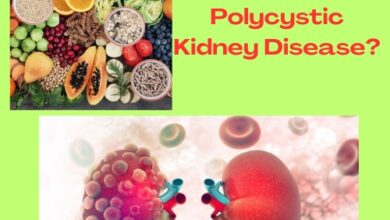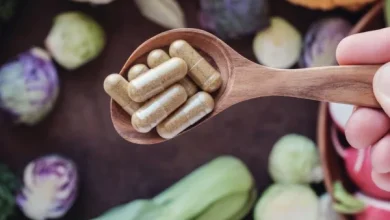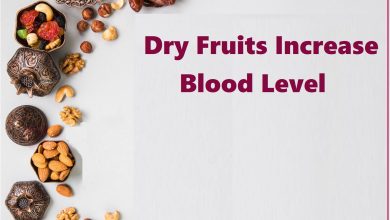Vegan Diet Reduces Biological Age, Study Finds
In just eight weeks, researchers saw a significant difference.

Many of us wish we could go back in time as we age. Furthermore, adhering to a specific diet regimen may help you look younger biologically, even though time travel is not currently possible. Biological age refers to the age of a person’s cells and current state of health rather than their chronological age. A recent little study suggests that eating veganism may help you look younger biologically.
In an investigation that was published in BMC Medicine, Stanford University researchers enlisted 21 sets of 39-year-old adult identical twins to examine the effects of eight weeks on a plant-based diet on specific forms of DNA modification known as methylation patterns, which are used to determine biological age. One twin from each pair followed a strictly plant-based (vegan) diet for the eight weeks of the trial, while the other followed a “healthy” omnivore diet that included both plants and animal products.
Researchers discovered at the conclusion of the trial that those who ate a vegan diet experienced a significant decrease in biological aging markers in general, as well as in particular age-related markers in the metabolic, hormonal, liver, heart, and inflammatory systems.
Additionally, vegan diet followers lost two kilograms more weight on average than non-vegan ones, probably because their meals during the first four weeks of the study had 200 less calories. The weight loss may have also had a role in the variations in biological ages between the two groups, the researchers noted.
According to Melissa Prest, D.C.N., R.D.N., national media representative for the Academy of Nutrition and Dietetics and member of the Prevention Medical Review Board, a vegan diet consists of consuming no animal products at all. According to chef, nutritionist, and author of The Plant-Based Diabetes Cookbook Jackie Newgent, R.D.N., C.D.N., being vegan also means avoiding animal-derived goods like honey and gelatin. According to Keri Gans, M.S., R.D., author of The Small Change Diet, if you choose to follow a vegan diet, your diet will consist solely of plant-based foods such nuts, seeds, legumes, vegetables, whole grains, fruits, and soy.
What then is the relationship between aging and cells and a vegan diet? It’s an illustration of an anti-inflammatory plant-based eating regimen, according to Prest. Prest says, “Anti-inflammatory diets may contribute to longevity and help combat age-related health changes.”
According to Newgent, plant-based diets, such as veganism, have long been linked to improved health, including a decreased risk of cardiometabolic disorders like type 2 diabetes and cardiovascular disease. “Eating a vegan diet is linked to better diet quality and a more diverse gut microbiota, which can promote overall health and potentially better quality of life as someone ages,” the author adds, in contrast to an eating plan that contains animal products.
However, be aware that not everyone will benefit from a strictly plant-based diet before making the decision to go vegan. Lack of vitamin B12, which we require more of as we age, is a typical issue with vegan diets, according to Prest. “It is advised that you take a vitamin B12 supplement or eat foods fortified with vitamin B12 if you are on a vegan diet.”
In agreement, Newgent notes that individuals who are “at risk for nutrient deficiencies, such as iron, zinc, or vitamin B12, or they require higher amounts of certain nutrients, such as calcium and vitamin D for osteoporosis treatment,” could not benefit from a vegan diet.
Therefore, even if the study found no negative impacts of eating a vegan diet, one must weigh the advantages of aging against the possibility of micronutrient deficiencies, which may take years to manifest.
The bottom line
According to Prest, this study emphasizes the possible advantages of a plant-based diet pattern for aging healthily. Despite this, Gans notes that “this study was conducted on a small number of subjects over a brief period of time. As a result, albeit encouraging, the results are still preliminary.
However, this research suggests that switching to a plant-based diet, even for a brief period of time, may make you feel younger, according to Newgent. “If at all possible, I recommend consulting with a registered dietitian nutritionist to determine the best eating plan tailored to your specific health needs and goals,” she continues. Prest emphasizes that you do not need to adopt a vegan diet in order to benefit from a plant-based diet. “Build from there, starting small by incorporating a fruit or vegetable into at least one meal or snack each day.”




